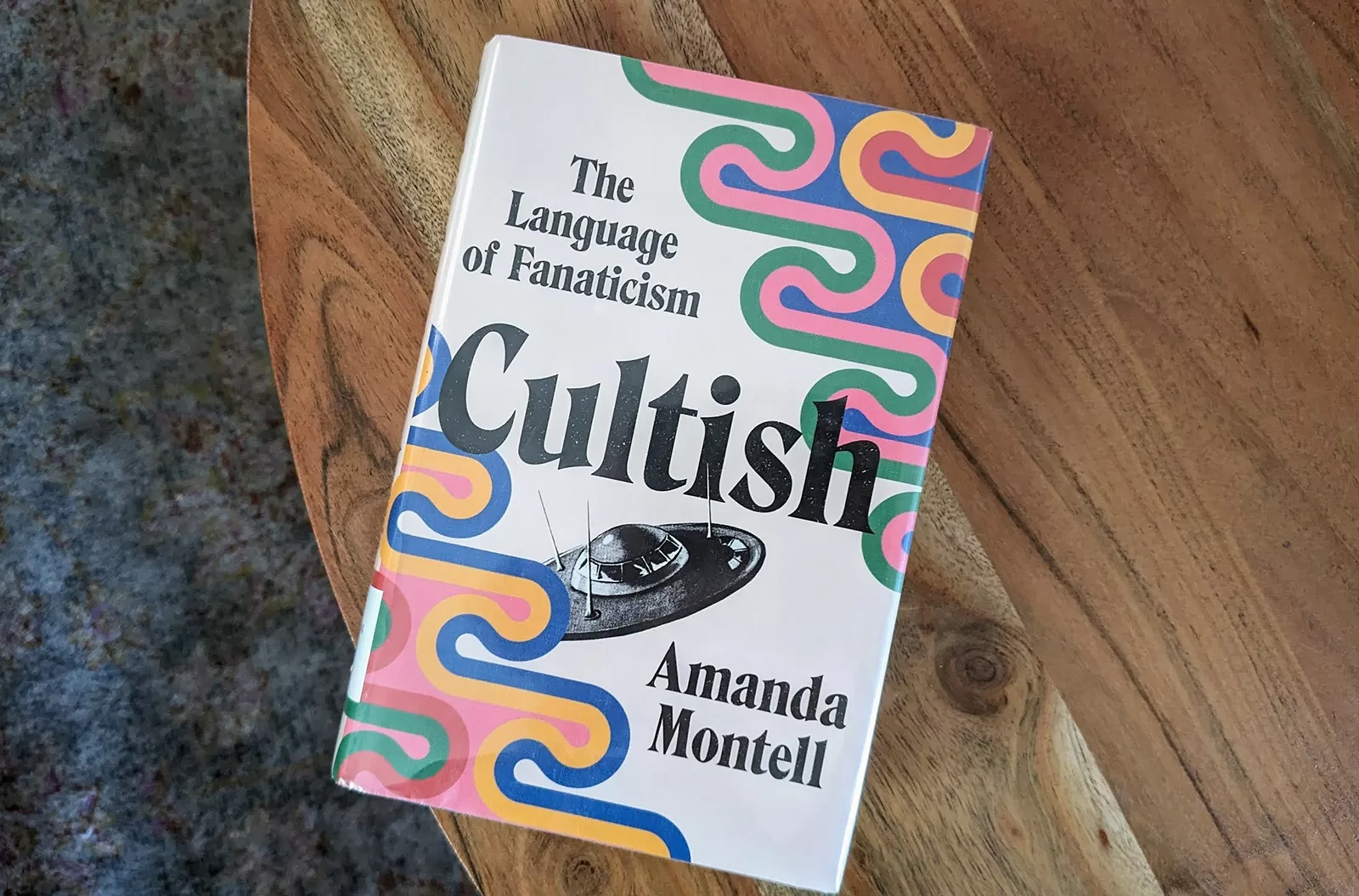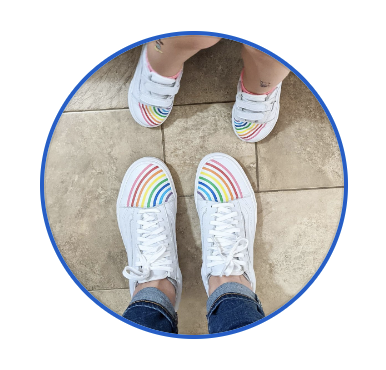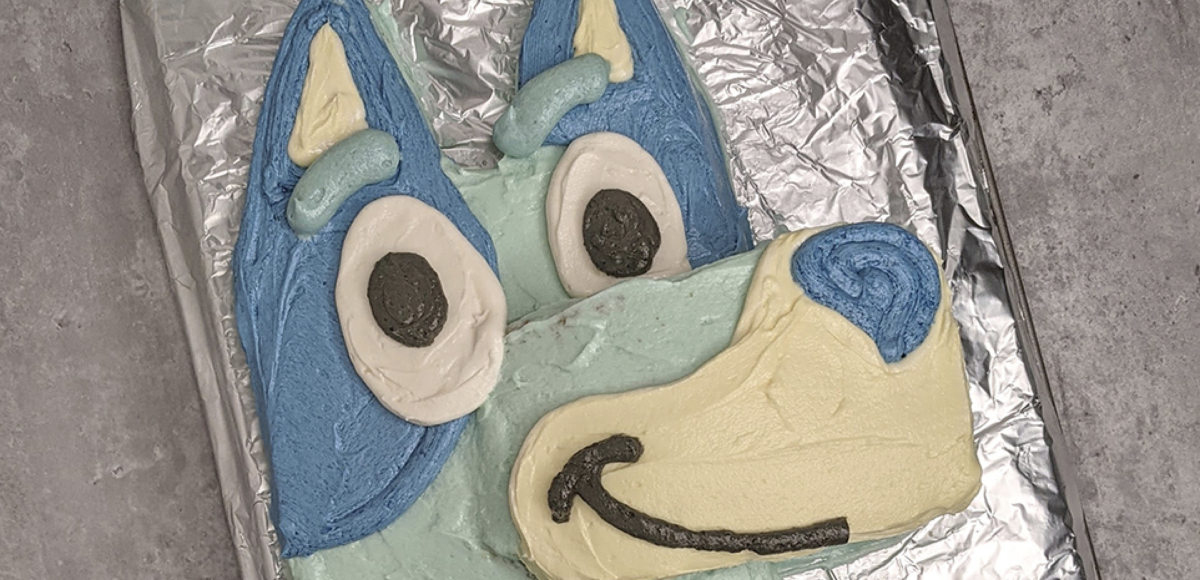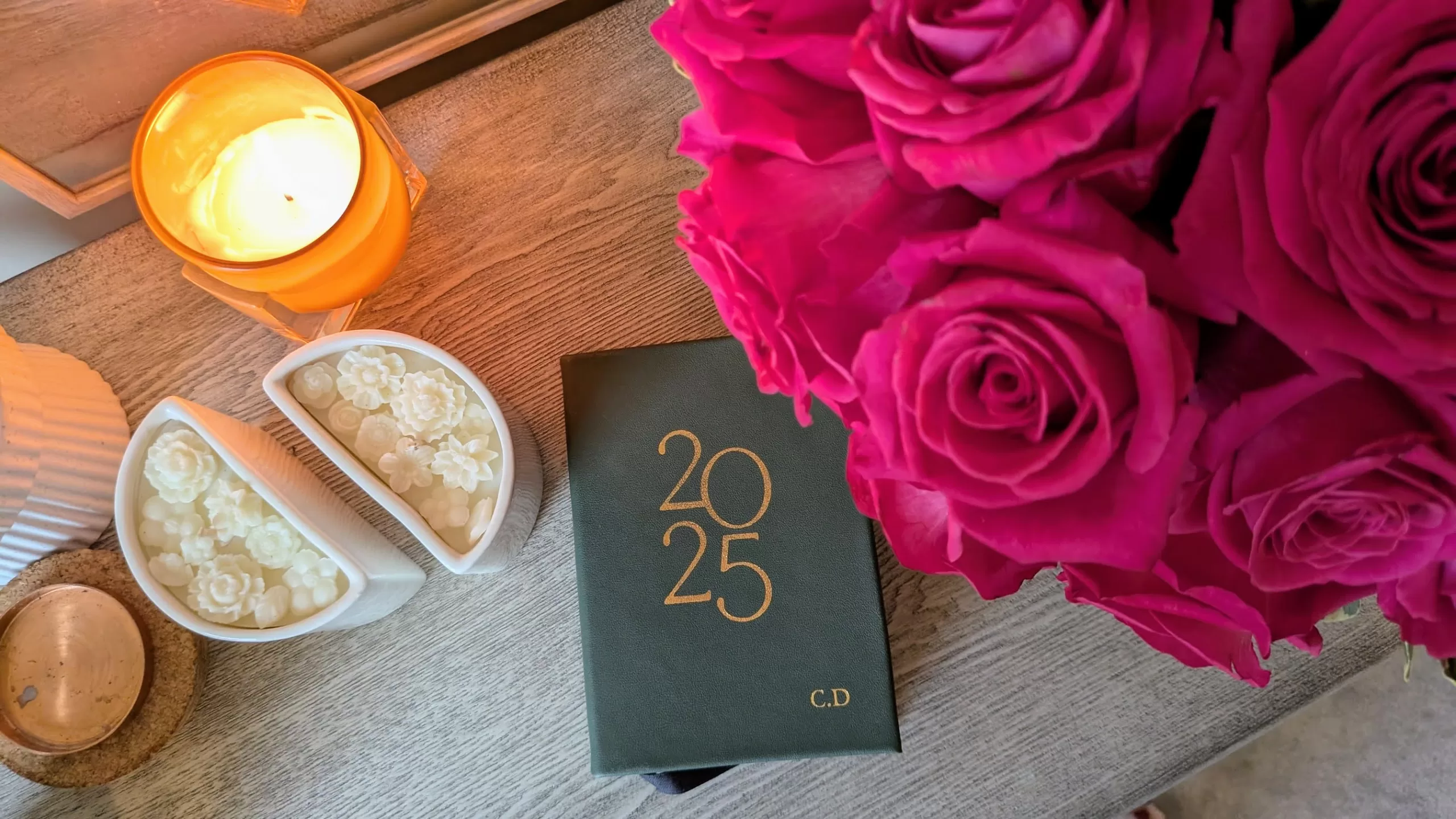This post may contain affiliate links. Every link is hand-selected by our team, and it isn’t dependent on receiving a commission. You can view our full policy here.
Blame it on The Age of Magical Overthinking: Within days of listening to the audiobook, I found myself on an Amanda Montell binge, eagerly checking out—and devouring—her previous book, Cultish, from the library. I couldn’t put it down, even though I was initially wary of the book’s premise, which listed everything from Jonestown to SoulCycle within the realm of being “cultish.” Would the book deem them all equally corrupt and awful? Would it cynically dismiss anyone with a sense of belonging as weak-minded or foolish?
Thankfully, in a world of absolutist statements, Cultish embraces nuance, sharing the spectrum of “cultish” experiences and groups—and what can separate a club from something more sinister. The book quickly establishes how the word has grown to have such a strong, negative connotation that many psychologists won’t use the term professionally. Their reasoning: Labeling something a “cult” suggests how others should feel about it. (See my own concerns about people’s hobbies being labeled as such.)
What’s riveting is Montell’s breakdown of how language can be used to convert, build connection and make people feel part of something bigger than themselves. And how it can be used to exclude, as well as stifle creative, critical thought. Every group on the cultish spectrum, be it members of an MLM organization or Heaven’s Gate, has their own insider-y terms. For some, it’s so intense it’s almost like learning a second language; for others, it’s the jargon that comes with getting in deep in a very specific, shared interest.

But what separates a harmless “cultish” following from a potentially dangerous one, beyond the obvious?
You hear stories of people getting “in too deep” with something and wonder how that happens; this book breaks things down thoughtfully. Throughout Cultish, Montell addresses major cognitive biases (such as the sunk-cost fallacy and confirmation bias) that can affect people’s judgment. She also offers a few key distinctions:
- You should consent to join—and continue taking part in—the group. If you don’t want to take part anymore, the ability to leave should be clear-cut and easy to do so. If you were to quit, what is the mental, social and actual financial cost of doing so? (To that end, if you are thinking of leaving a group that’s been a huge part of your life, be it a church or a gym membership, beware of the sunk-cost fallacy. It can make you think that you’ve invested so much you might as well see things through…long after they’ve stopped being beneficial to you.)
- How does spending time in—and out—of the group make you feel afterward?
- Rituals can be beneficial, provided they have a start and end, so you can integrate back into the rest of the world. Having a ritual, such as chanting or lighting a candle before journaling, “temporarily removes a person from the center of their own little universe—their anxieties, their everyday priorities,” Montell writes. ” It helps mentally transition followers from worldly, self-focused humans to one piece of a holy group. And then, theoretically, it should allow them to transition back into real life.”
- You should be able to think critically and raise questions about the group. “If something is legitimate, it will stand up to scrutiny,” writer and counselor Dr. Steven Hassan told Montell. Look out for thought-terminating clichés—phrases designed to end a conversation and get you to stop questioning things—and push back.
Ultimately, we’re wired for belonging. Being part of a group can help you manage stress and be more resilient in times of difficulty, according to the Mayo Clinic. As someone who’s enjoyed clubs and learning about organizations of all kinds, Cultish didn’t make me warier of them; it just made me more mindful. And less quick to judge anyone who gets involved with what becomes an actual cult.
You can find Cultish at most major bookstores (and at many libraries), as well as on Amazon.




